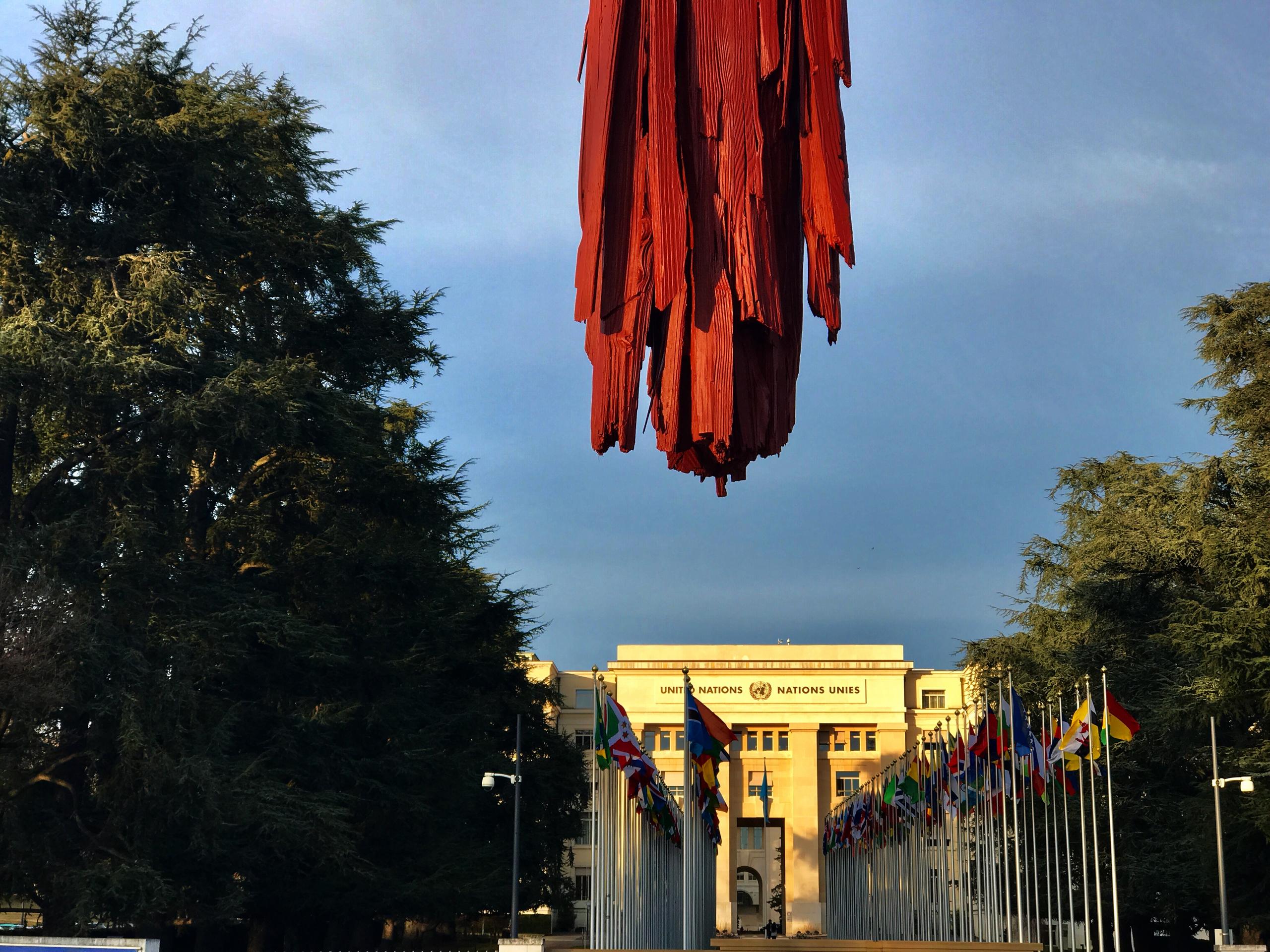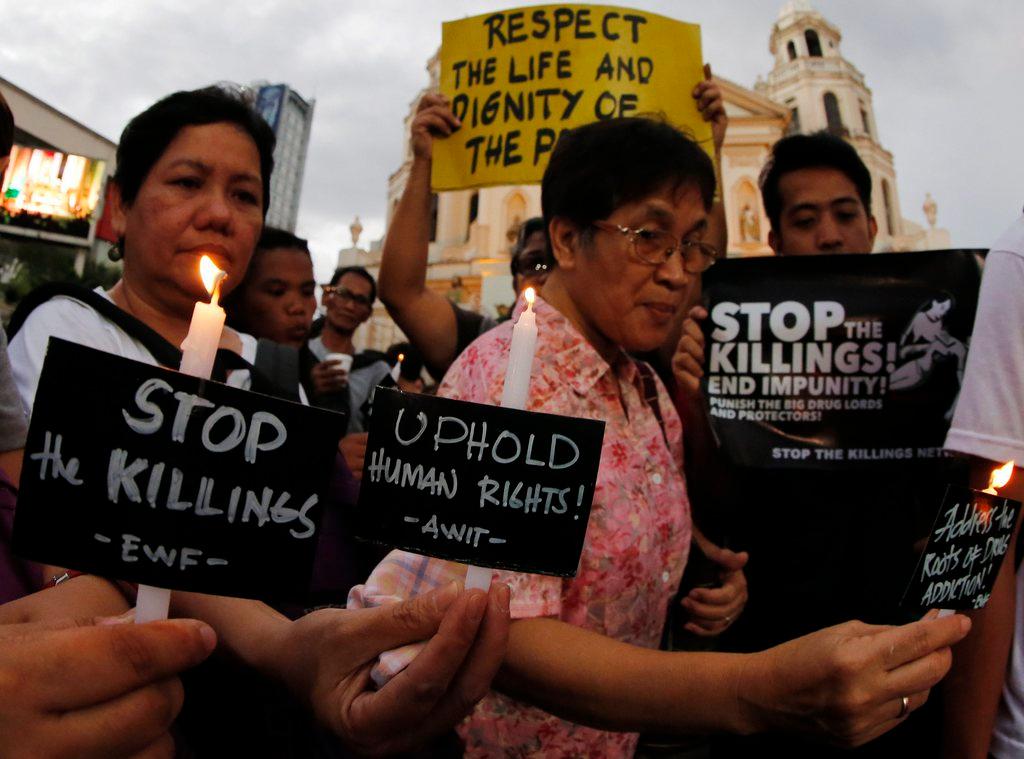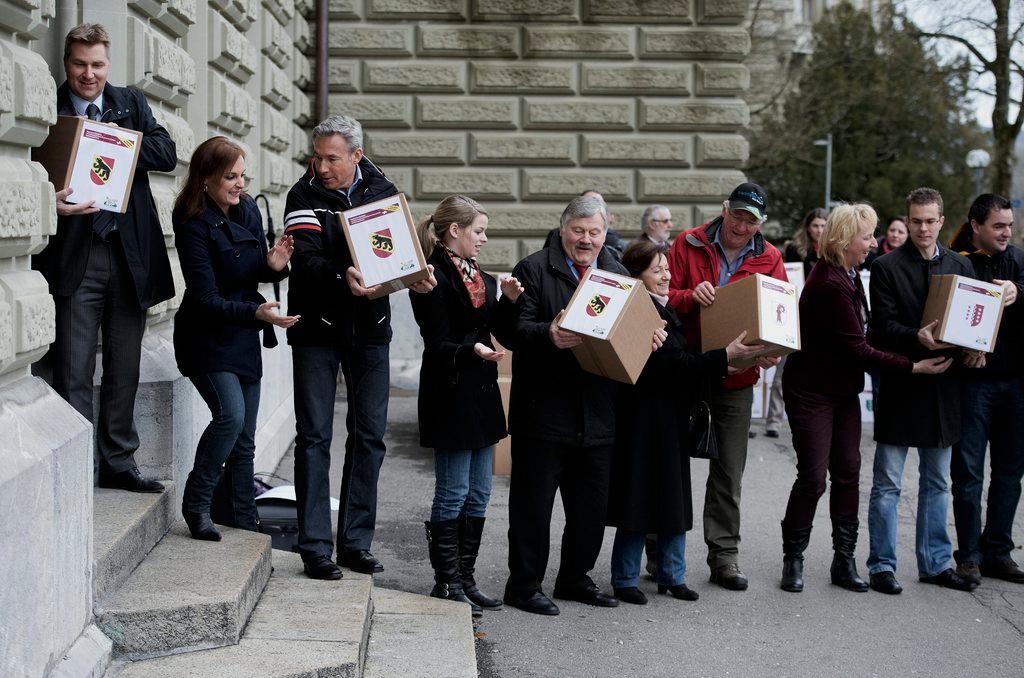Political shift challenges Human Rights Council

The first session of the United Nations’ Human Rights Council in 2017 is taking place against a particularly bleak backdrop, with rising populism in some of the world’s most established democracies.
“We are in a period of uncertainty and insecurity. We do not know where the world is going. Some players like China are becoming increasingly important. We have a new US administration. This session of the Human Rights Council may help us to better orient ourselves and see where the debate is headed,” said Ambassador Valentin Zellweger, the human rights chief at the Swiss mission to the UN in Geneva.
Defenders of civil liberties are particularly worried. “A pathogen of divisive populism has infected a portion of the world so swiftly, much of what we work for now seems threatened,” Zeid Ra’ad Al Hussein, United Nations High Commissioner for Human Rights, recently saidExternal link.
Contentious remarks by Donald Trump, the new “leader of the free world”, particularly on the use of tortureExternal link, have been stirring things up. Established democracies in Europe are also grappling with a surge in populism. Reasons enough for authoritarian regimes like IranExternal link to reject so-called western values and use this as an opportunity to reinforce their own policies.
Two international human rights organisations, Amnesty International and Human Rights Watch, confirmed the deteriorating global situation and the danger of a rising populism in their recent 2016 reports. “Politicians wielding a toxic, dehumanising us vs them rhetoric are creating a more divided and dangerous world,” warnedExternal link Amnesty International.
State of the World: politics of demonization and lack of global human rights leadership. https://t.co/375ut9xsYgExternal link pic.twitter.com/fPe1UEalUlExternal link
— AmnestyInternational (@amnesty) 22 février 2017External link
The high commissioner for human rights equally felt compelled to point out that mechanisms of human rights protection such as international refugee and humanitarian law that had been established after the Second World War weren’t “as some would have you believe, the outcome of post-war bureaucratic doodling. They were woven together from the screams of millions who died violently or suffered horribly over many centuries. We know very well what will happen, should they be dissolved.”
The intergovernmental Human Rights Council is front and centre of this debate. Since its creation in 2006, this UN body has served as a battlefield as its 47 member states slug it out, seeking to either strengthen or reduce its clout. So far, this diplomatic tussle has not resulted in a weakening of the council or relevant international treaties. But that’s a status quo that could potentially be upended with the new occupant of the White House.
The council was flagged up early on by the new US ambassador to the UN, Nikki Haley, during her confirmation hearing before the Senate. She questioned the presence of China and Cuba on the council, saying: “They are mainly there to protect their own interests, while at the same time criticising other countries to make things difficult for them. Do we want to be part of it? Do we want to raise funds for this?” Her remark is pertinent, even if she didn’t cite other members who follow the same tactic, such as US ally Saudi Arabia.
The threat of an empty US seat on the council (as during the Bush administration) and financial withdrawal are a concern. As Jean Ziegler, vice-president of the council’s Advisory Committee, notes: “The US hasn’t always nominated an ambassador to the Human Rights Council. We don’t know who to speak to. This doesn’t bode well for the future, especially as the US is the main financial backer of the UN.” He warns of a more offensive attitude towards the US administration if it continues to target human rights.
Ambassador Zellweger notes that it is still too early to draw conclusions. “For the moment, this administration is distracted by a certain unpredictability. But we should remain cautious. There will always be uncertainties at the start of a transition of this kind.”
It is an inter-governmental body within the United Nations system responsible for strengthening the promotion and protection of human rights around the globe and for addressing situations of human rights violations and make recommendations on them. It can discuss all thematic human rights issues and situations that require its attention throughout the year. It meets at the UN Office at Geneva.
The Council is made up of 47 United Nations Member States elected by the UN General Assembly.
Its Universal Periodic ReviewExternal link mechanism serves to assess the human rights situations in all United Nations Member States.
The Human Rights Council replaced the former United Nations Commission on Human RightsExternal link.
Three sessions are held every year. The most recent one began on February 23 and runs until March 24External link.
Adapted from French by Jessica Dacey

In compliance with the JTI standards
More: SWI swissinfo.ch certified by the Journalism Trust Initiative





You can find an overview of ongoing debates with our journalists here. Please join us!
If you want to start a conversation about a topic raised in this article or want to report factual errors, email us at english@swissinfo.ch.